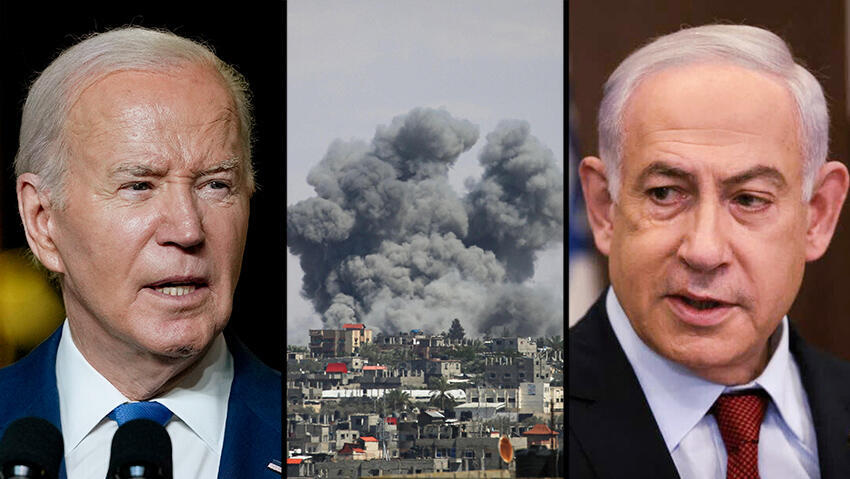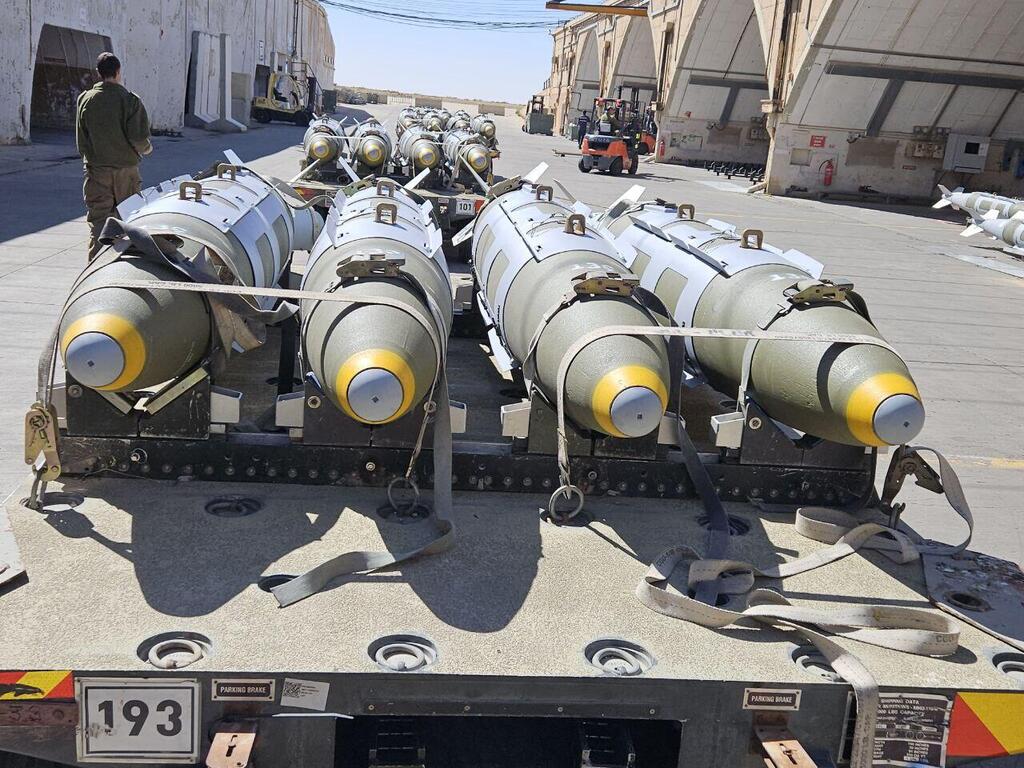Getting your Trinity Audio player ready...
Despite U.S. President Joe Biden's decision to hold off the delivery of 3,500 one-ton bombs to Israel and reassess other arms transfers, Israeli officials anticipate that Washington will eventually supply the munitions but will restrict their use in Rafah until the southernmost city in the Gaza Strip is completely evacuated.
Israeli sources, citing discussions with U.S. officials, told Ynet that Washington is seeking a resolution to the impasse over delayed weapon deliveries. The anticipated solution involves Israel receiving the munitions, with specific stipulations prohibiting their use until Rafah, Hamas' last stronghold in Gaza, is evacuated.
2 View gallery


US President Joe Biden and Prime Minister Benjamin Netanyahu
(Photo: REUTERS/Amir Cohen/Pool, AP Photo/Morry Gash, AFP)
A defense official noted that while the weapons are expected to be released to Israel, their deployment in Rafah will be expressly forbidden under the terms of existing procurement agreements, which grant Washington the necessary authority.
Officials indicate that although Washington is not opposed to military action in Rafah in and of itself, it expects an effective evacuation of the city’s residents.
Meanwhile, the IDF announced on Saturday morning that 300,000 Gazans had been evacuated from Rafah in the past six days, considerably faster than the month-long evacuation of Gaza City in the north of the Palestinian enclave. In West Gaza, evacuation only concluded after Israel established checkpoints.
Israeli officials hope that a presidential memorandum released on Friday affirming compliance with international law will provide the U.S. with sufficient grounds to resolve the delay in weapons shipments.
White House National Security Council spokesperson John Kirby on Friday maintained that while the U.S. supports Israel's right to defend itself against Hamas, it does not endorse a large-scale, indiscriminate invasion of Rafah.
He emphasized the importance of the method of military operation, stating that the U.S. believes there are more cautious ways to address the threat. Kirby also reiterated that Hamas poses a “genocidal” threat to Israel and said that further discussions on the issue are anticipated.
Meanwhile, the Security Cabinet has agreed this week to draw up a new proposal for a hostage deal, though no concrete proposal is currently in place, allowing Hamas more time to negotiate before Israel intensifies actions in Rafah.
Meanwhile, a U.S. State Department report submitted to Congress indicated that while there have been concerns about Israel's use of U.S.-made weapons in ways that may not comport with international law, there is insufficient evidence of specific legal violations to justify stopping military aid. The report emphasized that Israel has given credible assurances that it will adhere to international law in using U.S. weapons, allowing continued military support from the U.S.




